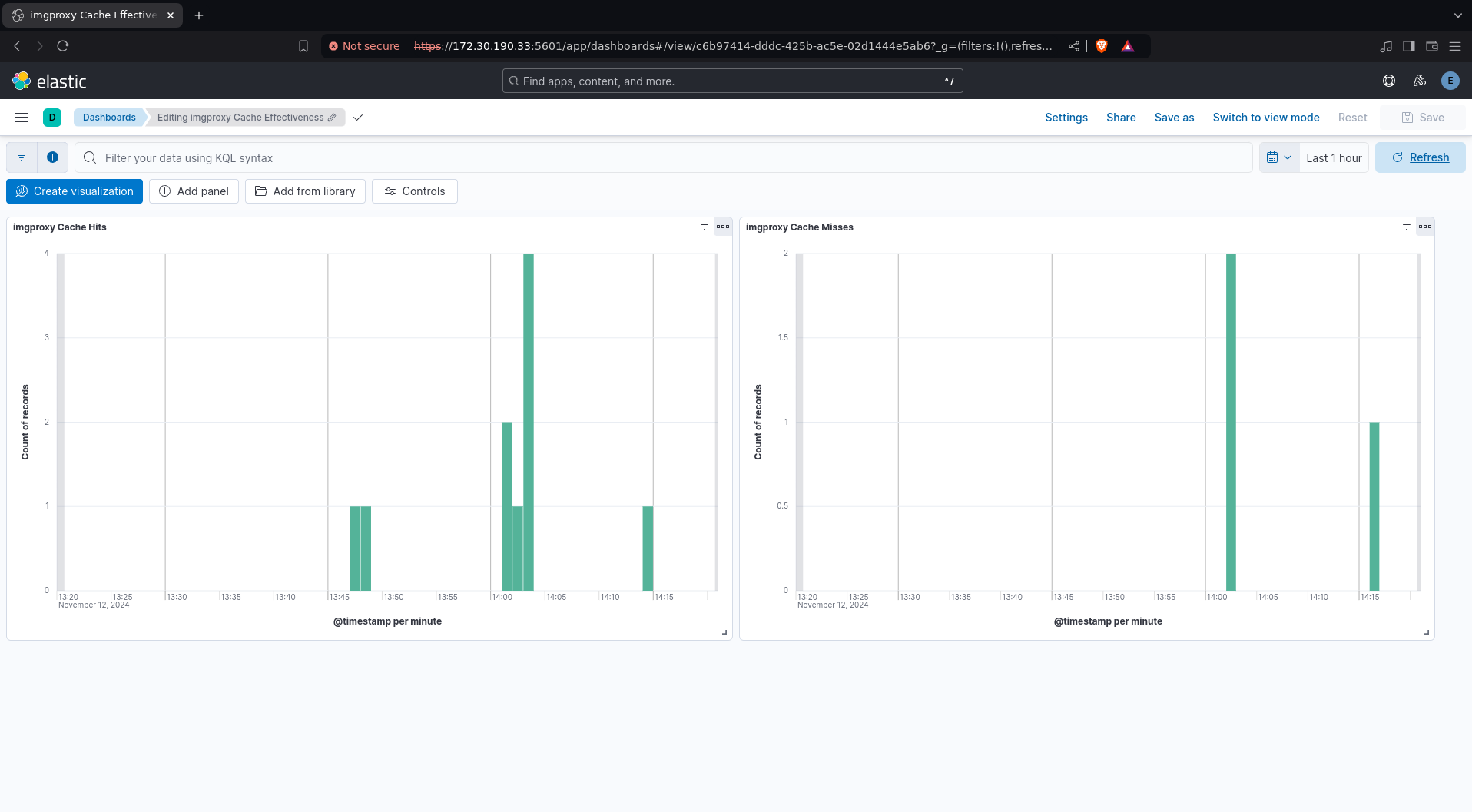These are notes on feeding logs from my image cache running on kubernetes into elasticsearch ECK.
First off, I have the elastic stack installed via a combination of helm, opentofu, and argocd:
resource "helm_release" "eck" {
name = "eck"
namespace = "default"
repository = "https://helm.elastic.co"
chart = "eck-operator"
version = "2.14.0"
}
---
apiVersion: elasticsearch.k8s.elastic.co/v1
kind: Elasticsearch
metadata:
name: prod
namespace: default
spec:
version: 8.16.0
nodeSets:
- name: default
count: 1
config:
node.store.allow_mmap: false
volumeClaimTemplates:
- metadata:
name: elasticsearch-data
spec:
accessModes:
- ReadWriteOnce
resources:
requests:
storage: 16Gi
storageClassName: ceph-block
---
apiVersion: kibana.k8s.elastic.co/v1
kind: Kibana
metadata:
name: prod
namespace: default
spec:
version: 8.16.0
count: 1
elasticsearchRef:
name: prod
namespace: default
---
apiVersion: beat.k8s.elastic.co/v1beta1
kind: Beat
metadata:
name: prod
namespace: default
spec:
type: filebeat
version: 8.16.0
elasticsearchRef:
name: prod
namespace: default
config:
filebeat.inputs:
- type: container
paths:
- /var/log/containers/*.log
daemonSet:
podTemplate:
spec:
dnsPolicy: ClusterFirstWithHostNet
hostNetwork: true
securityContext:
runAsUser: 0
containers:
- name: filebeat
volumeMounts:
- name: varlogcontainers
mountPath: /var/log/containers
- name: varlogpods
mountPath: /var/log/pods
volumes:
- name: varlogcontainers
hostPath:
path: /var/log/containers
- name: varlogpods
hostPath:
path: /var/log/pods
To get pod logs into elasticsearch, im using filebeat. Hosts’ /var/log/containers directories get mounted into a daemonset of filebeat containers, which forward them to elasticsearch.
This lets us search logs across all containers in the cluster in kibana like so:
log.file.path: /var/log/containers/...
There may be a more straightforward way to do this with some k8s-native plugin for elasticsearch, but this is the approach outlined in the eck filebeats quickstart.
With elasticsearch in place, we can now craft some useful queries.
The imgproxy service writes simple ‘cache hit’ or ‘cache miss’ tokens to its logs:
imgproxy-lite-687dbb7dcb-tvsfj imgproxy-lite 10.42.0.33 - - [12/Nov/2024 20:01:31] "GET /?img=main.jpg&q=50 HTTP/1.1" 200 -
imgproxy-lite-687dbb7dcb-tvsfj imgproxy-lite cache hit
imgproxy-lite-687dbb7dcb-tvsfj imgproxy-lite 10.42.0.33 - - [12/Nov/2024 20:02:28] "GET /?img=main.jpg&q=50 HTTP/1.1" 200 -
imgproxy-lite-687dbb7dcb-tvsfj imgproxy-lite cache hit
imgproxy-lite-687dbb7dcb-tvsfj imgproxy-lite 10.42.0.33 - - [12/Nov/2024 20:02:37] "GET /?img=main.jpg&q=51 HTTP/1.1" 200 -
imgproxy-lite-687dbb7dcb-tvsfj imgproxy-lite cache miss
… which we can match in kibana:
log.file.path: /var/log/containers/imgproxy* and "cache hit"
Finally, we just need to create a dashboard in kibana with a “cache hit” query and a “cache miss” query:

